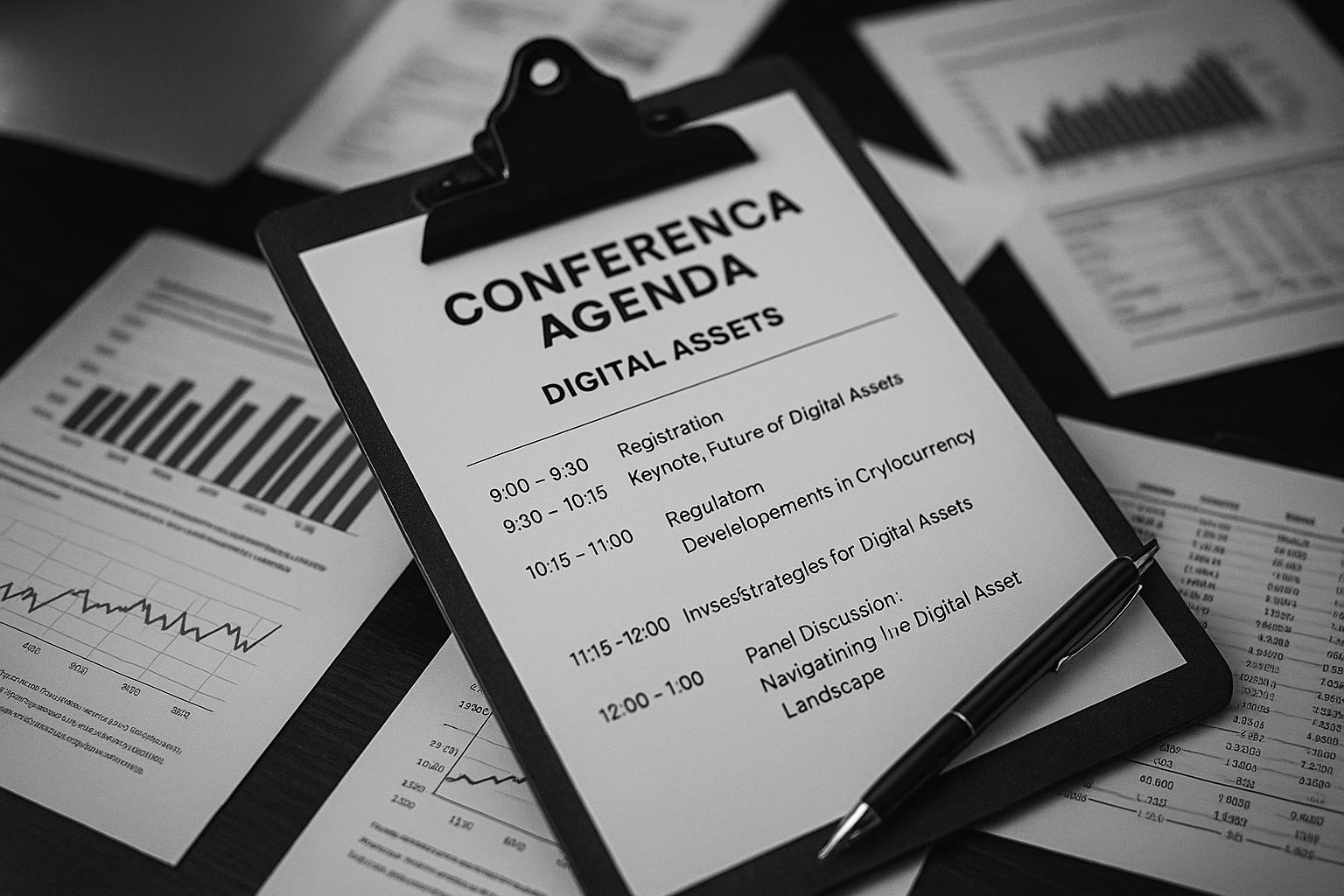The upcoming DigiAssets 2025 conference, set to take place on June 17–18 at Convene, 155 Bishopsgate in London, promises to be a pivotal gathering for Europe’s asset managers, hedge funds, private banks, and investment firms focusing on digital asset strategies. This year's event is designed to move discussions beyond pilot projects towards production-ready digital strategies, addressing critical themes such as regulation, interoperability, and diversification amid heightened political and market uncertainty in the UK and the USA. With over 30 sessions planned, the conference aims to equip institutional investors with the insights needed to adopt scalable and practical digital asset solutions.
A highlight of the event will be a closed-door Bitcoin Treasury Strategy panel, headed by Andrew Webley, CEO of The Smarter Web Company PLC. The session will delve into balance sheet allocation approaches using Bitcoin, exploring governance and custody solutions critical to digital asset management. Limited to 40 participants selected through a pre-event survey, this forum is intended to foster candid conversations under the Chatham House Rule, allowing early adopters and experts to share real-world experiences. Mr Webley’s involvement reflects his company’s growing prominence in the bitcoin space, despite some market debate around its recent dramatic market capitalisation surge, emphasising the increasing institutional interest in cryptocurrency as a treasury asset.
Another key discussion will explore why institutional portfolios are beginning to incorporate digital assets for diversification. Led by Jasmine Burgess, CEO/CIO of Isogonal Ltd, the panel will compare cryptocurrency performance against traditional assets, analysing risk management models such as the traditional 60/40 portfolio mix and contrasting active versus passive strategies. This session aims to clarify how digital assets can complement, rather than replace, existing investment frameworks, offering potential for optimized diversification and long-term growth.
The conference will also advance discourse on the tokenization of financial assets and its potential to transform the institutional landscape. Tony Ashraf, Managing Director at BlackRock, will contribute insights on overcoming technical challenges and integrating tokenized projects with traditional payment platforms. Discussions will cover real-world applications like tokenized funds and digital cash solutions, addressing liquidity challenges that currently hamper market growth. These conversations are expected to shed light on how tokenized financial products might evolve into mainstream institutional investment vehicles.
Liquidity, a critical factor in digital asset markets, will be a major focus throughout DigiAssets 2025. Daði Kristjánsson, CEO of Viska Digital Assets, will participate in a panel examining Bitcoin ETFs, exchange models, and the regulatory environment shaping trading infrastructure. The panel will explore the vital roles of prime brokers and market makers in fostering liquidity and navigating fragmented trading venues, addressing the challenges institutions face when adapting to a complex regulatory landscape. Such discussions are poised to influence future trading practices and infrastructure investments.
The broader impact of DigiAssets 2025 could be significant for the digital asset market’s development. Progress in tokenization and clearer regulatory frameworks may encourage deeper institutional participation and attract more mainstream investment. Improved liquidity and a wider array of investable digital products might help stabilise pricing trends while offering institutions refined strategies for integrating digital assets into their portfolios. Overall, the conference is expected to shape how institutions engage with digital assets in the coming years, emphasizing practical implementation over theoretical discussion.
In addition to insightful sessions, the conference also stands as a major networking opportunity, bringing together leading figures from financial institutions, central banks, regulatory bodies, and innovative providers to debate the future of digital asset markets. Such gatherings are critical in driving forward understanding and collaboration necessary for this evolving field’s maturation.
📌 Reference Map:
- Paragraph 1 – [1], [2], [6], [4]
- Paragraph 2 – [1], [3]
- Paragraph 3 – [1]
- Paragraph 4 – [1]
- Paragraph 5 – [1]
- Paragraph 6 – [1]
- Paragraph 7 – [1], [6]
Source: Noah Wire Services
